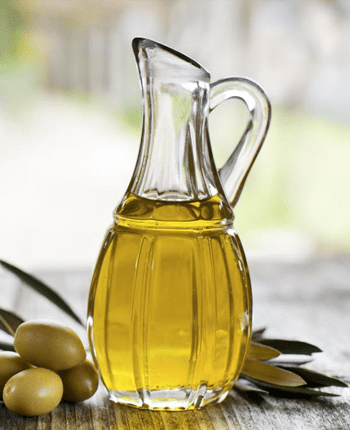
Mediterranean Food
The Mediterranean diet food pyramid depicts of a diet rich in fat, fiber and carbohydrates. The high consumption of grains and fruits and vegetables grant high intake of plant fiber. It includes whole grain products like breads and pasta. Moderate consumption of wine is also included in this diet.
What makes Mediterranean diet healthy is the low consumption of red meat and meat products. In turn, protein is obtained from legumes. These are so-called “poor man’s meat’ because they contain as much protein as meat. Add legumes to your dishes such as fava beans, green peas, and other dry beans. Eat nuts such as peanuts and walnuts for a light afternoon snack.
Other compounds that you can take advantage of from a Mediterranean diet are antioxidants, vitamins and minerals and high amount of good cholesterol. This ensures a healthy lifestyle with low risk for cardiovascular illnesses.
Olive Oil vs Cardiovascular Diseases
Olive oil is the ultimate source of fats in the Mediterranean diet. In contrast to the popular belief that this diet is centered on eating low fat foods, olive oil and it’s benefits are consumed in great amounts in Mediterranean cuisine.
Olive oil is extracted from olives by chemical or mechanical means. Great care is taken to produce quality oil for use in different industries as well as culinary use. In the Mediterranean, olive oil is the main cooking oil for all dishes.
Olive oil is composed of different forms of fatty acids. Studies show that a diet rich in olive oil such as the Mediterranean diet, results to increased Low Density Lipoprotein or “good cholesterol” in the body. The combined diet of vegetables and olive oil affects systolic and diastolic pressure as indicated by a study done in the Mediterranean population.
LDL or low-density lipoproteins are considered “good” because they transport cholesterol and triglycerides in the bloodstream. By doing so, they speed up the elimination of these substances as well as distribute them in the cells of the body. With the dominant presence of olive oil in the Mediterranean diet, the benefits are also enhanced.
LDL, being a fatty acid still, contributes to atherosclerosis or the buildup of fatty materials in the blood vessels. Studies say that this problem can be overcome with intake of antioxidants which the Mediterranean diet is also abundant. Olive oil along with red wine can be the source of antioxidants in this eating pattern. The polyphenol antioxidants found in olive oil is postulated to be largely responsible for the cardio-protective benefits.
Olive Oil vs Cancer
As a dressing in salads and standard cooking oil in the countries in the Mediterranean, olive oil is indeed useful. Aside from reducing the risk of coronary heart problems, olive oil is discovered to be rich in squalene compared to sunflower oil. Squalene, based on a study published on the Journal of Lipid Research, is also present in large amounts in olive oil.
Squalene is a compound that is a great part of the Mediterranean diet as well. this is vital in the synthesis of vitamin D, cholesterol and steroids in the body. Rich sources of squalene come from shark liver oil. It is also said to be a substance that can greatly reduce your risk to cancer.
All these benefits can be found in olive oil which occupies a big part in the Mediterranean diet food pyramid.
..hope this has been a help,
Ray Baker

